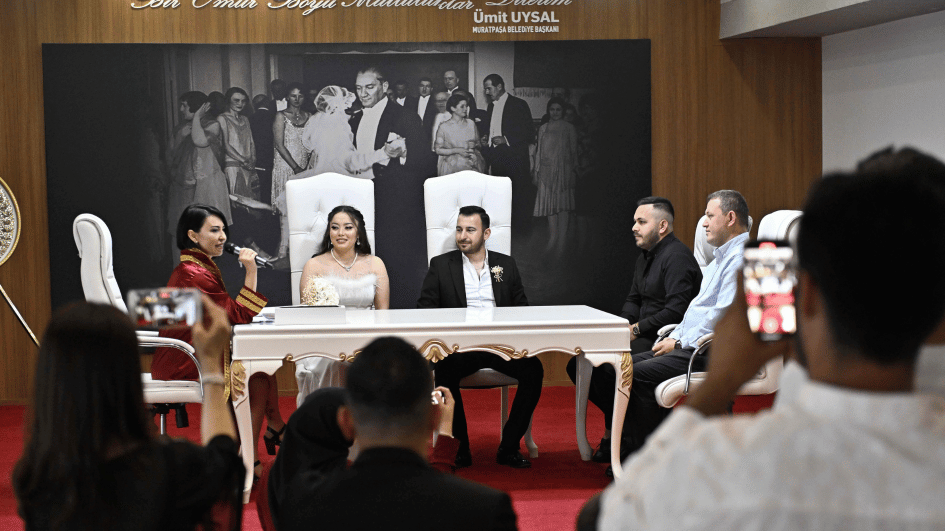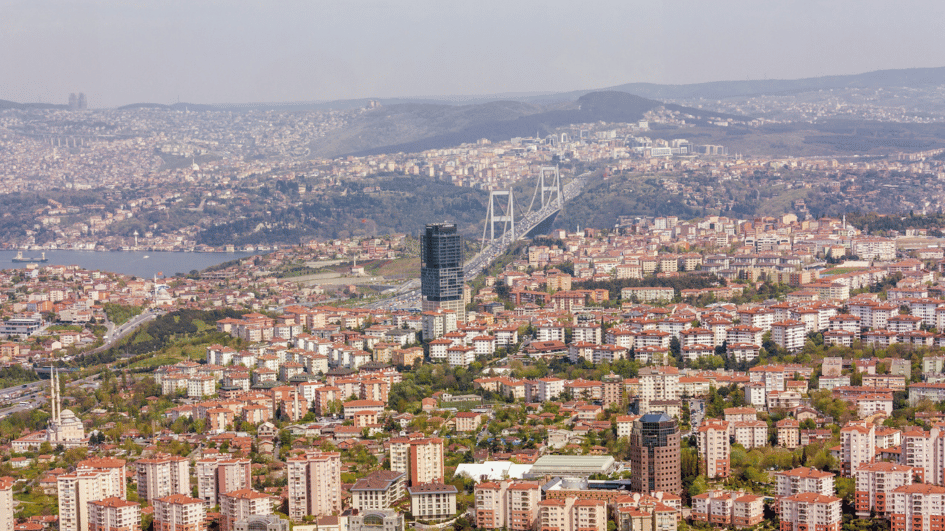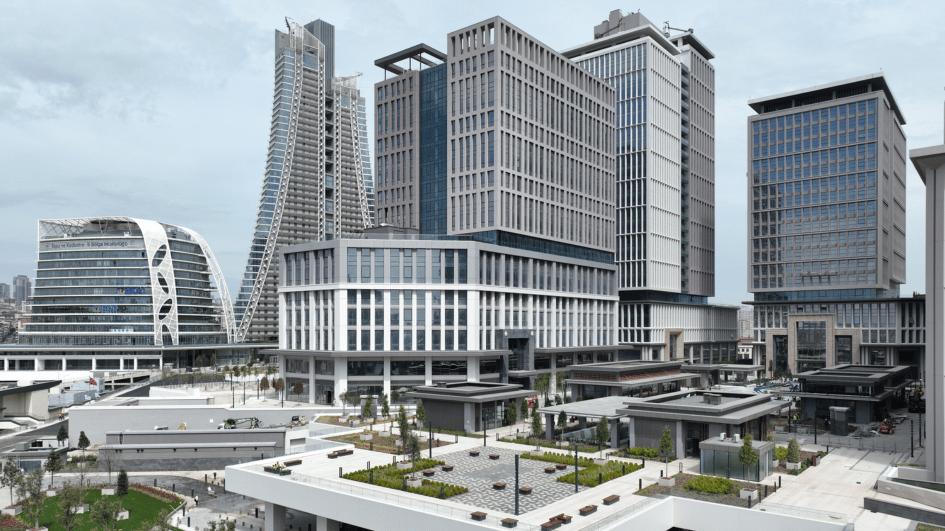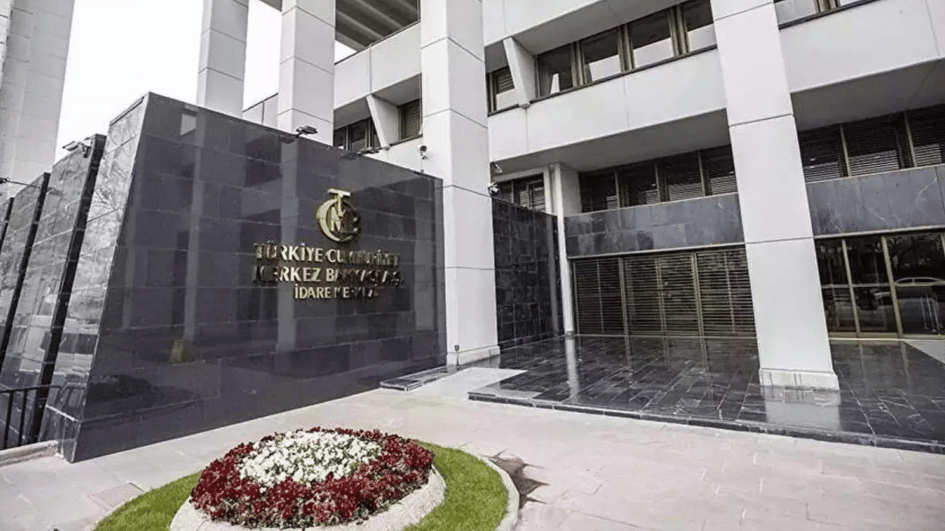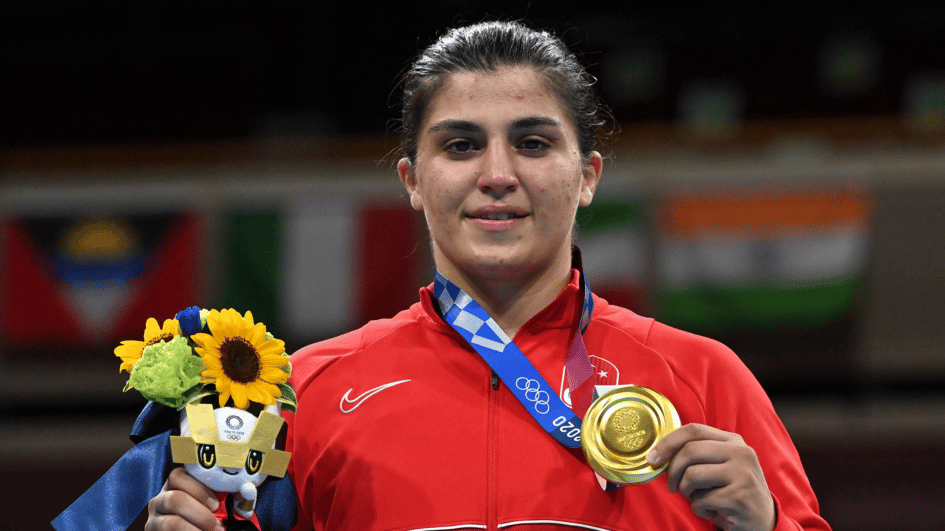Aid group says Israeli strike kills 7 of its workers in Gaza, including foreigners
GAZA STRIP

A food aid organisation said an Israeli strike killed several of its workers in the besieged Gaza Strip on Monday, with the health ministry in the Hamas-run territory reporting that four of them were foreigners.
"Today, World Central Kitchen lost several of its sisters and brothers in an Israeli army strike in Gaza," said the NGO's founder, chef Jose Andres.
World Central Kitchen, a US-headquartered organisation, called the incident a "tragedy" and reiterated that "humanitarian aid workers and civilians should never be a target".
According to the health ministry in Gaza, the bodies of four foreign aid workers and their Palestinian driver were brought to a hospital in the town of Deir el-Balah after an Israeli strike targeted their vehicle.
Hamas said the aid workers included "British, Australian and Polish nationalities, with the fourth nationality not known".
Australian Prime Minister Anthony Albanese confirmed one of his country's citizens, volunteer Zomi Frankcom, was among those killed.
World Central Kitchen is one of two international NGOs spearheading efforts to deliver aid to Gaza by boat from Cyprus.
It is also involved in the construction of a temporary jetty in the coastal territory.
At the Al-Aqsa Hospital, an AFP correspondent saw five bodies with three foreign passports lying nearby.
"We are heartbroken and deeply troubled by the strike that... killed @WCKitchen aid workers in Gaza," White House National Security Council spokesperson Adrienne Watson posted on social media platform X.
"Humanitarian aid workers must be protected as they deliver aid that is desperately needed, and we urge Israel to swiftly investigate what happened."
The Israeli military said it was "conducting a thorough review at the highest levels to understand the circumstances of this tragic incident".
Israel has come under immense pressure to increase the flow of humanitarian aid into the strip after six months of war and stark warnings from the United Nations about the dire levels of hunger stalking all 2.4 million Gazans.
A UN-backed report warned on March 19 that half of Gazans were feeling "catastrophic" hunger and projected imminent famine in the territory's north.
Near-total blockade
Since Hamas's October 7 attacks triggered the war, Gaza has been under a near-complete blockade, with the United Nations accusing Israel of preventing deliveries of humanitarian aid.
The world's top court has ordered Israel to "ensure urgent humanitarian assistance" in Gaza without delay, saying "famine is setting in".
Foreign powers have ramped up deliveries by air and sea, although UN agencies and charities warn this falls far short of what is desperately needed, with trucks still the most efficient way of delivering aid.
The airdrops have also proved deadly in some cases, leading to chaotic stampedes for food.
After the UN-backed report last month, US Secretary of State Antony Blinken said it was the first time an entire population had been classified at severe levels of "acute" food insecurity.
The bloodiest-ever Gaza war erupted with Hamas's unprecedented October attack, which resulted in about 1,160 deaths in Israel, mostly civilians, according to an AFP tally of Israeli official figures.
Israel's retaliatory campaign, aimed at destroying Hamas, has killed at least 32,845 people, mostly women and children, according to the health ministry in Gaza.
On Tuesday, the ministry said 70 people had been killed across the Gaza Strip in the past 24 hours.
Al-Shifa hospital in ruins
On Monday, the Israeli army pulled out of Al-Shifa Hospital in Gaza City after an intensive, two-week military operation against Hamas transformed the territory's largest medical complex into charred ruins.
"There are more terrorists in the hospital than patients or medical staff," Israeli army spokesman Daniel Hagari said, adding that 900 people had been apprehended at the sprawling complex, with over 500 of them "definitely" militants.
A spokesman for Gaza's civil defence agency said Israeli forces had killed about 300 people in and around the hospital during the two-week operation.
"People trapped in Al-Shifa hospital died of hunger. Some drank water from bathroom drains," Palestinian Anwar el Jondi said.
Medics carting patients and bodies from the destroyed site had to manoeuver stretchers between mounds of rubble.
Several doctors and civilians at the damaged complex told AFP that at least 20 bodies had been found, some of which appeared to have been driven over by military vehicles.
An AFP correspondent saw one badly decomposed body bearing tyre marks, although it was not known when it was driven over.
'Dangerous lie'
The Israeli military said Monday that 600 soldiers had been killed since the start of the war.
During their attack on Israel, Palestinian militants also seized around 250 hostages. Israel believes about 130 remain in Gaza, including 34 presumed dead.
Israeli Prime Minister Benjamin Netanyahu is under rising pressure from the families of hostages as well as anti-government protesters, whose nightly rallies have drawn thousands onto the streets.
On Monday, Netanyahu vowed to ban broadcasts from Israel by Qatar-based news channel Al Jazeera, after the Israeli parliament granted him new powers. He called it a "terrorist channel".
The broadcaster said the Israeli prime minister's comments were a "dangerous, ludicrous lie".
The war in Gaza has raised fears of a wider regional conflagration, with repeated violence linked to the conflict in Iraq, Lebanon, Syria and Yemen.
Those fears intensified on Monday with strikes in Damascus on the consular annex of Israel's arch-foe Iran, according to Damascus and Tehran.
The Syrian Observatory for Human Rights, a war monitor based in Britain, said 11 people were killed.
The Islamic Revolutionary Guard Corps said seven members were killed, including two senior officers, Brigadier General Mohammad Reza Zahedi and Brigadier General Mohammad Hadi Haji Rahimi.
Israel did not comment, but Iran's foreign minister blamed the United States for the attack.
"The Americans must take responsibility," Iranian Foreign Minister Hossein Amir-Abdollahian said, according to state news agency IRNA.
The UN Security Council will on Tuesday hold a public meeting, requested by Russia, on the strike, according to Russian representative Dmitry Polyansky.


